ZODIAK ONLINE
Sect. 5, P/Bag 312
Lilongwe, Malawi
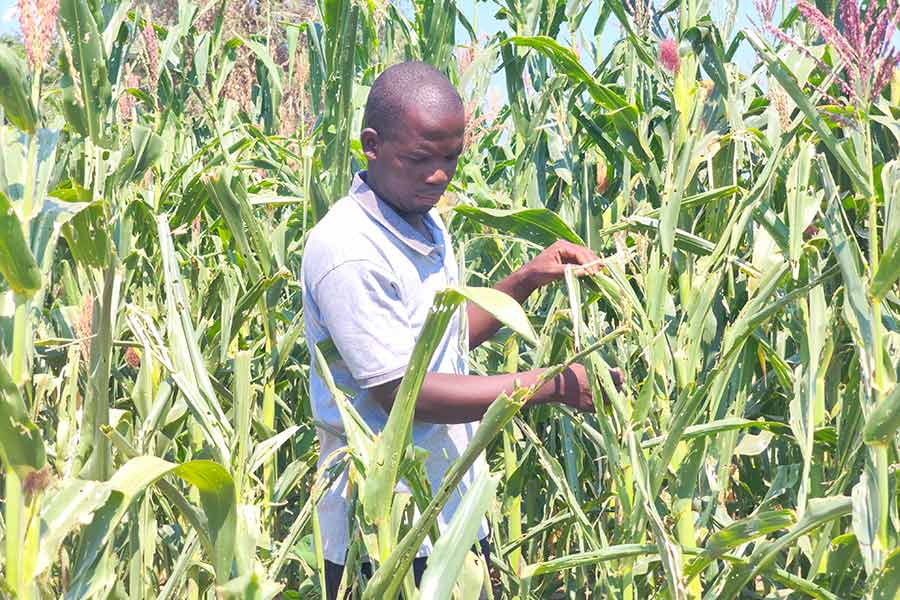
Farmers across Malawi continue to face mounting challenges due to climate change — drought in one season and floods in the next — as shifting weather patterns tighten their grip on the country’s fragile agricultural systems.
The growing spread of crop pests and diseases is worsening this crisis, many of which thrive under these erratic conditions. Chief among them is the Fall Armyworm, a fast-spreading pest notorious for its devastating appetite and ability to ravage maize fields stalk by stalk.
For farmers in Malawi, this battle is not just against nature; it’s a fight for survival.
Maize fields, once symbols of abundance, have become battlegrounds where crops are scorched by drought, submerged by floods, or stripped bare by pests.
In Salima District, 43-year-old farmer Zigele Kuonera from Ngwena Village, Traditional Authority Ndindi, under the Chipoka Extension Planning Area, continues to battle the relentless Fall Armyworm.
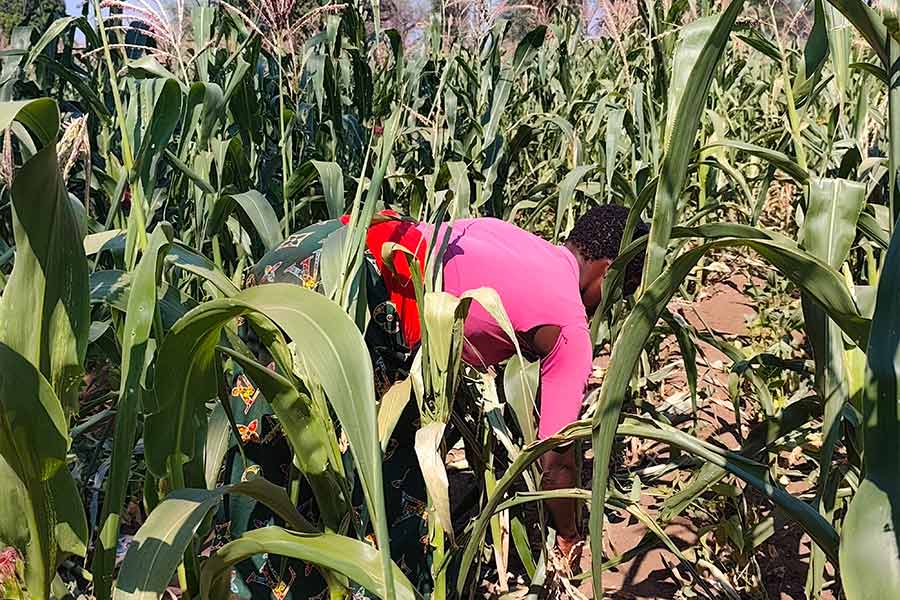
Her three-acre maize field, severely affected during the 2024/2025 growing season, has once again been attacked this winter cropping season, with the pest damaging more than half of her farmland.
“Over the past years, I’ve seen a huge decline in harvests because of these Fall Armyworms. Despite my efforts to boost yields through irrigation farming, these pests are a nightmare,” said Kuonera.
More than 26,000 hectares of farmland were destroyed by Fall Armyworms during the 2024/25 farming season in Malawi. Prolonged dry conditions created ideal breeding grounds for the pests, leading to widespread crop damage and further reducing already limited yields.
At least 4.1 million people are now seeking immediate food support this lean season, according to a Malawi Vulnerability Assessment Committee (MVAC) report. This development has forced the government to procure 200,000 metric tons of maize from neighboring Zambia, spending $77 million in the process.
This crisis follows the devastation of Cyclone Freddy in 2023, which severely impacted the agricultural sector, affecting more than 200,000 hectares of crops across the country.
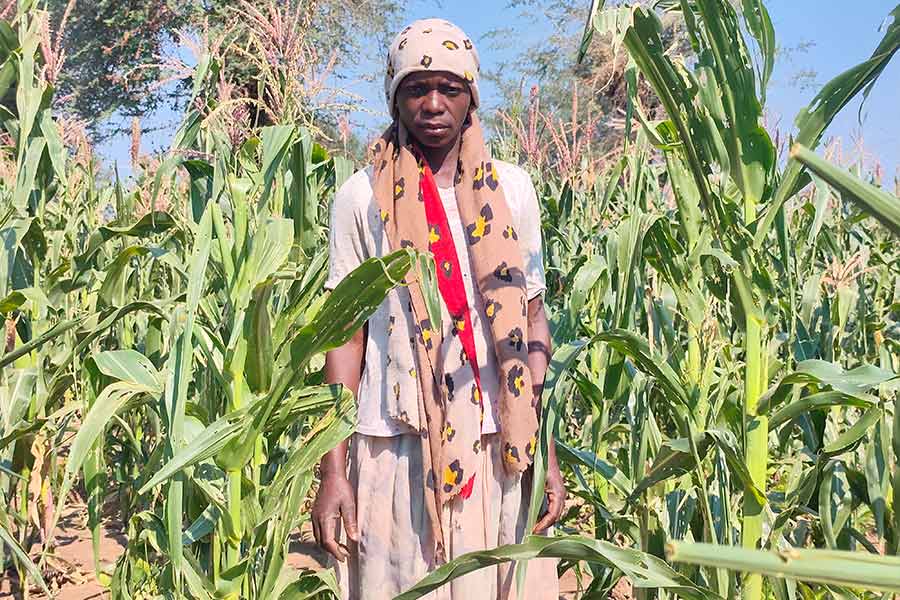
Amina Khumbira, a 40-year-old farmer from the same village, is also feeling the weight of climate change and pest infestations.
With four children to feed, she says droughts and Fall Armyworms have become major setbacks to her irrigation farming efforts.
“I’ve applied several chemicals on this farmland, but to no avail. I even resorted to locally made solutions to deal with the pests, yet nothing has changed. We need help,” lamented Khumbira.
In response to chronic food shortages, the government introduced Mega Farms — a large-scale food production initiative expected to boost national output and resilience. But even Mega Farmers are not immune to the growing threats.
Harrison Mkango, a 32-year-old Mega Farmer, is one of 1,200 contracted by the government to produce maize for both local consumption and export. He manages over 60 hectares of irrigated land, yet this winter cropping season, the Fall Armyworm has already ravaged 10 hectares, threatening his production.
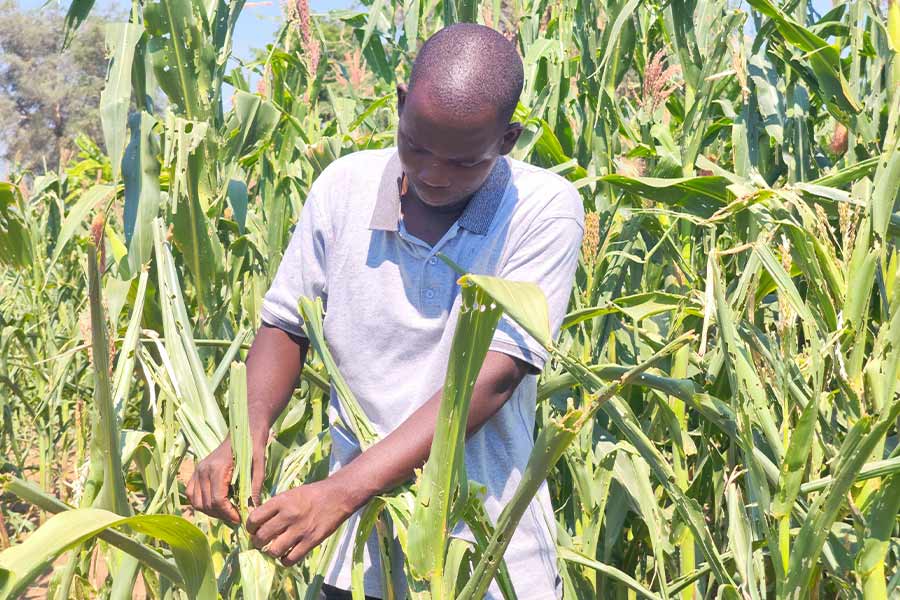
Many other Mega Farmers have also been affected, highlighting the widespread impact of Fall Armyworms across both commercial and smallholder farms.
“During the rainy season last year, I had high hopes of meeting my targets, but it was a far-fetched dream. Prolonged dry spells and the worms took their toll on my crops,” he said.
“I’ve done everything possible: spraying, early planting, irrigation — but the worms just keep coming back. It’s heartbreaking to see your field vanish overnight,” he added, gazing over the damaged crop.
Mkango decries the country’s lack of capacity to deal with Fall Armyworms and calls on researchers to find lasting solutions.
“I’ve invested heavily in my farm, both through government support and personal resources, but without effective solutions, we’ll continue to face these challenges,” he said.
Maize lies at the heart of Malawi’s food system. It occupies nearly 80 percent of the country’s cultivated land and remains the staple food for most households.
Since 2016, Malawi’s Ministry of Agriculture, Irrigation and Water Development has acknowledged that climate change-induced Fall Armyworms have had a devastating impact on agricultural productivity. Over 40 other African countries have also been affected.
According to Ministry spokesperson Arnold Namanja, the government has stocked thousands of liters of pesticides to combat Fall Armyworms ahead of the 2025/2026 farming season, targeting up to 100,000 hectares of maize fields.
“We’ve stocked 22,000 bottles of Indoxacarb and 40,820 bottles of Profenofos to be distributed to farmers for free. Part of these pesticides have already been sent to Agriculture Development Divisions (ADDs),” Namanja disclosed.
“We’re also in the process of procuring an additional 70,000 bottles of Chlorpyrifos and 22,000 bottles of Lufenuron. Each bottle is 100ml, and together these pesticides can potentially protect over 100,000 hectares of maize crops from infestation,” he added.
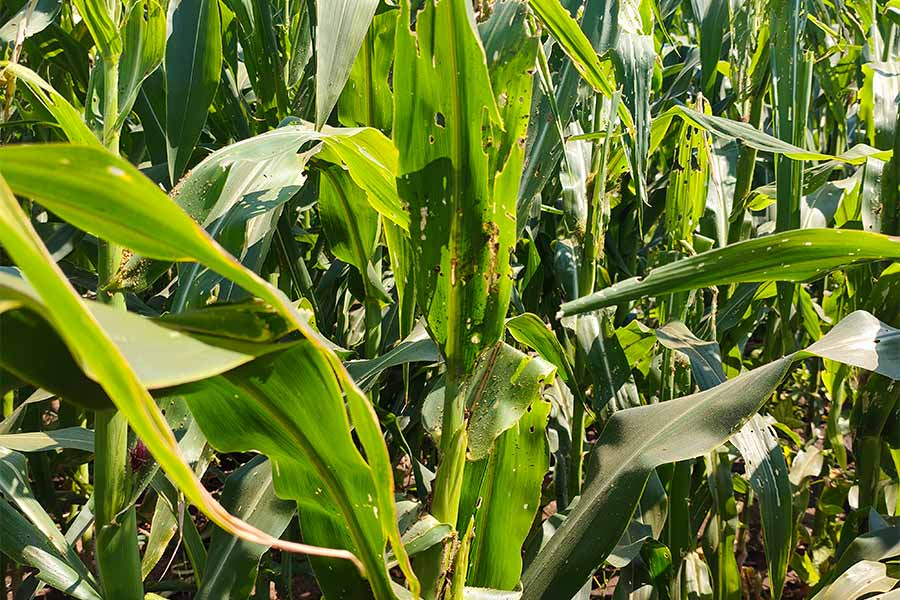
Malawi’s new President, Peter Mutharika, has declared a state of disaster in eleven districts — Salima, Blantyre, Chikwawa, Lilongwe, Mulanje, Mwanza, Neno, Nkhotakota, Nsanje, Phalombe, and Thyolo — following a surge in food insecurity across the country. The declaration paves the way for immediate relief efforts and intervention measures aimed at supporting affected communities.
President Mutharika said the worsening food situation, driven largely by prolonged dry spells and other economic challenges, has severely impacted agricultural production and household food availability, prompting urgent government action to mitigate the crisis.
The Lilongwe University of Agriculture and Natural Resources (LUANAR) has been conducting scientific trials on the use of Genetically Modified (GMO) maize seeds in Malawi, aiming to develop a Fall Armyworm-resistant variety.
Despite research progress, Malawi has yet to adopt GMO food crops — a delay that continues to frustrate agricultural scientists and researchers.
Dr. Kingdom Kwapata, a biotechnology research scientist at LUANAR leading the development and testing of GMO maize, believes genetic modification is a long-term solution to pest invasions and climate shocks.
“The use of GMO maize is a long-term answer. These varieties can withstand extreme weather conditions such as droughts and pest infestations, especially Fall Armyworms,” said Dr. Kwapata.
He argues that relying on chemical pesticides is unsustainable and harmful.
“Procuring chemicals every season is a waste of resources and a short-term fix. These pesticides also pose risks to human health and the environment,” he emphasized.
“If we continue to resist new technology, Malawi will lag behind, and our farmers will continue to suffer. We already have these seeds in the country—what’s needed is political will,” he added.
Dr. Kwapata warns that Fall Armyworms can destroy up to 90 percent of maize yield in affected fields, worsening food insecurity.
Agriculture expert Leonard Chimwaza agrees that climate change adaptation remains a major gap in Malawi’s agricultural planning. He cites poor preparedness and limited use of weather forecasts as key contributors to the recurring crises.
“The multiplication of pests usually goes hand in hand with humidity. Farmers must use information provided by the Department of Climate Change and Meteorological Services to plan properly,” said Chimwaza.
He also noted the lack of effective implementation of Malawi’s Disaster Risk Management Strategy, which could help mitigate the impact of climate-related threats such as Fall Armyworms.
“Stakeholders in the agriculture sector need to adopt proactive strategies to cope with climate change. Strengthening village civil protection committees can help smallholder farmers in rural areas respond better,” he added.
Across the region, countries like South Africa and Kenya have already adopted GMO food crops, boosting their agricultural productivity and resilience. Malawi has only approved GMO cotton seed, which is resistant to the bollworm and has proven effective.
Malawi and other southern African countries frequently affected by Fall Armyworms — including Mozambique, Zimbabwe, Botswana, Namibia, and Eswatini — could learn from these examples.
It is time for Malawi to seriously consider adopting Genetically Modified (GMO) food crops, including maize, as a sustainable way to enhance productivity, strengthen resilience to climate shocks, and secure the nation’s food supply.
By embracing GMO technology in the maize subsector, Malawi could reduce dependence on costly pesticides, improve food security, and empower farmers with reliable, high-yield crops capable of thriving under changing environmental conditions.